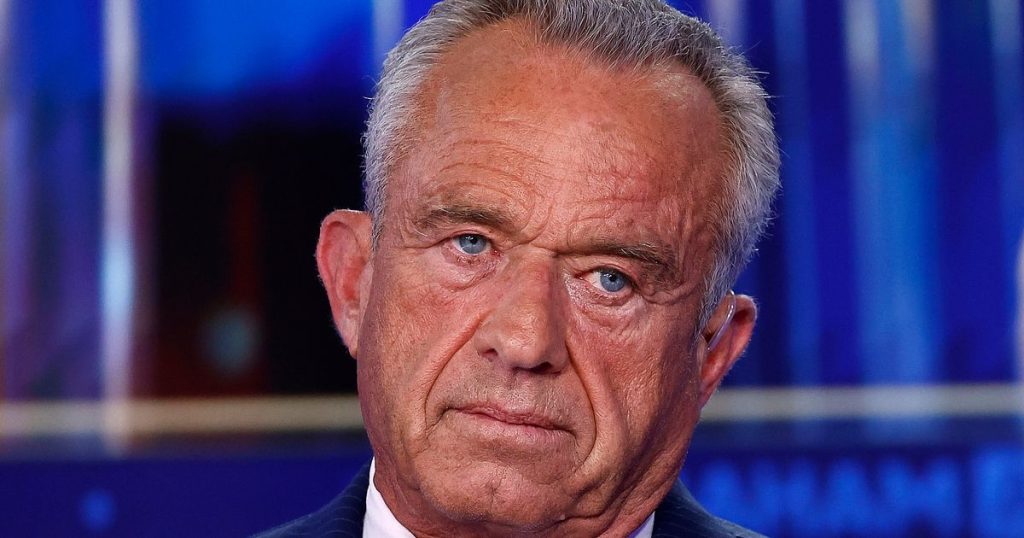The Resurgence of Robert F. Kennedy Jr.’s HPV Vaccine Claims and the Medical Community’s Response
In recent days, social media has seen a resurgence of Robert F. Kennedy Jr.’s past claims and criticisms about the HPV vaccine, particularly following his confirmation as the secretary of the Department of Health and Human Services. Kennedy, a well-known vaccine skeptic, has previously made contentious statements about the HPV vaccine, suggesting it may increase the risk of cervical cancer and labeling it as “dangerous and defective.” These assertions have been met with strong pushback from medical experts, who emphasize the vaccine’s proven safety and efficacy in preventing cancer-causing infections.
Dr. Amesh A. Adalja, a senior scholar at Johns Hopkins Center for Health Security, has called Kennedy’s claims “complete fabrication” and “brazen lying.” Adalja emphasized that the HPV vaccine has been rigorously studied and proven to reduce cervical cancer and precancerous lesions. Despite the overwhelming scientific consensus, Kennedy’s nomination to lead the HHS has sparked concern among medical professionals, with hundreds of scientists and healthcare providers urging the Senate to reject his appointment due to his "unfounded, fringe beliefs." During his confirmation hearings, Kennedy declined to directly address whether he still stood by his past statements about the HPV vaccine, further fueling concerns about his views on public health.
The Science Behind the HPV Vaccine: What It Does and Why It Matters
The HPV vaccine protects against the human papillomavirus, a highly prevalent virus that is responsible for several types of cancer, including cervical, anal, oropharyngeal (throat), penile, vaginal, and vulvar cancers. According to the National Cancer Institute, HPV is the leading cause of cervical cancer and contributes to the majority of anal and oropharyngeal cancers. While many HPV infections resolve on their own, persistent infections can lead to cancerous changes over time.
The HPV vaccine is designed to prevent these harmful outcomes by targeting high-risk strains of the virus that are most commonly associated with cancer. Studies have consistently shown that vaccinated individuals are significantly less likely to develop HPV-related cancers or precancerous lesions. For example, countries with widespread HPV vaccination programs have seen cervical cancer rates drop dramatically, with some regions reporting a near-complete elimination of the disease. Dr. Alastair McAlpine, a pediatrician, recently highlighted on social media that "countries with mass HPV vaccination have seen rates of cervical cancer drop to ZERO." He also warned that misinformation about the vaccine, such as Kennedy’s claims, can have deadly consequences.
How HPV Spreads and the Importance of Prevention
HPV is primarily spread through sexual contact, including vaginal, anal, and oral sex, but it can also be transmitted via nonsexual skin-to-skin contact. The virus is highly common, and most people will contract it at some point in their lives. While low-risk strains of HPV may cause genital warts, high-risk strains are associated with cancer development.
The Centers for Disease Control and Prevention (CDC) recommends that all preteens ages 11-12 receive two doses of the HPV vaccine, ideally before they are exposed to the virus. This timing is critical because the immune response to the vaccine is strongest when administered during early adolescence. The CDC also advises teens and young adults up to age 26 to get vaccinated if they missed the opportunity earlier. By vaccinating children before they become sexually active, parents can protect them from the lifelong risks associated with HPV infections.
The HPV Vaccine’s Safety Record and Effectiveness
Contrary to Kennedy’s claims, the HPV vaccine has undergone extensive testing and has been proven to be safe and effective. According to Ha Ngan (Milkie) Vu, an assistant professor at Northwestern University Feinberg School of Medicine, the vaccine is "one of the most extensively studied vaccines" with over 270 million doses administered globally, including more than 135 million doses in the U.S. Vu emphasized that the vaccine’s safety has been continuously monitored through large-scale studies involving millions of participants.
Common side effects of the HPV vaccine are mild and include soreness at the injection site, headache, or dizziness. Severe allergic reactions, such as anaphylaxis, are exceedingly rare, occurring at a rate of approximately 3 cases per 1 million doses. Vu likened the risks of not getting vaccinated to forgoing seatbelts, stating, "Preventing a disease is always better than treating it." Since the HPV vaccine’s introduction in 2006, cervical cancer rates and related deaths have dropped significantly among vaccinated age groups. A recent study suggested that HPV vaccination is responsible for a 62% decline in cervical cancer deaths among women under 25.
The Broader Impact of the HPV Vaccine on Public Health
The HPV vaccine not only protects individuals from cancer but also contributes to herd immunity by reducing the overall spread of the virus. Vu noted that widespread vaccination can prevent unknowingly passing the virus to others, thereby protecting entire communities. The vaccine’s benefits extend beyond cancer prevention, as it also reduces the incidence of genital warts and other HPV-related health issues.
Adalja stressed that boys should also be vaccinated, as they can develop HPV-related cancers, such as penile and anal cancer, and genital warts. The vaccine’s inclusion of boys in routine vaccination recommendations reflects a growing recognition of the importance of gender-neutral HPV prevention. By ensuring that all children are vaccinated, parents and caregivers can help safeguard future generations from the devastating consequences of HPV infections.
Conclusion: The Lifesaving Power of the HPV Vaccine
The HPV vaccine is a groundbreaking medical achievement that has already saved countless lives by preventing cancer-causing infections. Despite its proven track record, misinformation and unfounded skepticism continue to undermine public confidence in the vaccine. Kennedy’s claims, in particular, have been discredited by the scientific and medical communities as baseless and harmful.
Vu summed up the importance of the HPV vaccine, calling it "a powerful tool to prevent deadly cancers" and emphasizing that its benefits are undeniable. As the medical community continues to advocate for widespread vaccination, it is imperative that accurate information about the HPV vaccine reaches the public. By embracing this lifesaving vaccine, society can take a significant step toward reducing the burden of cancer and ensuring a healthier future for all.















